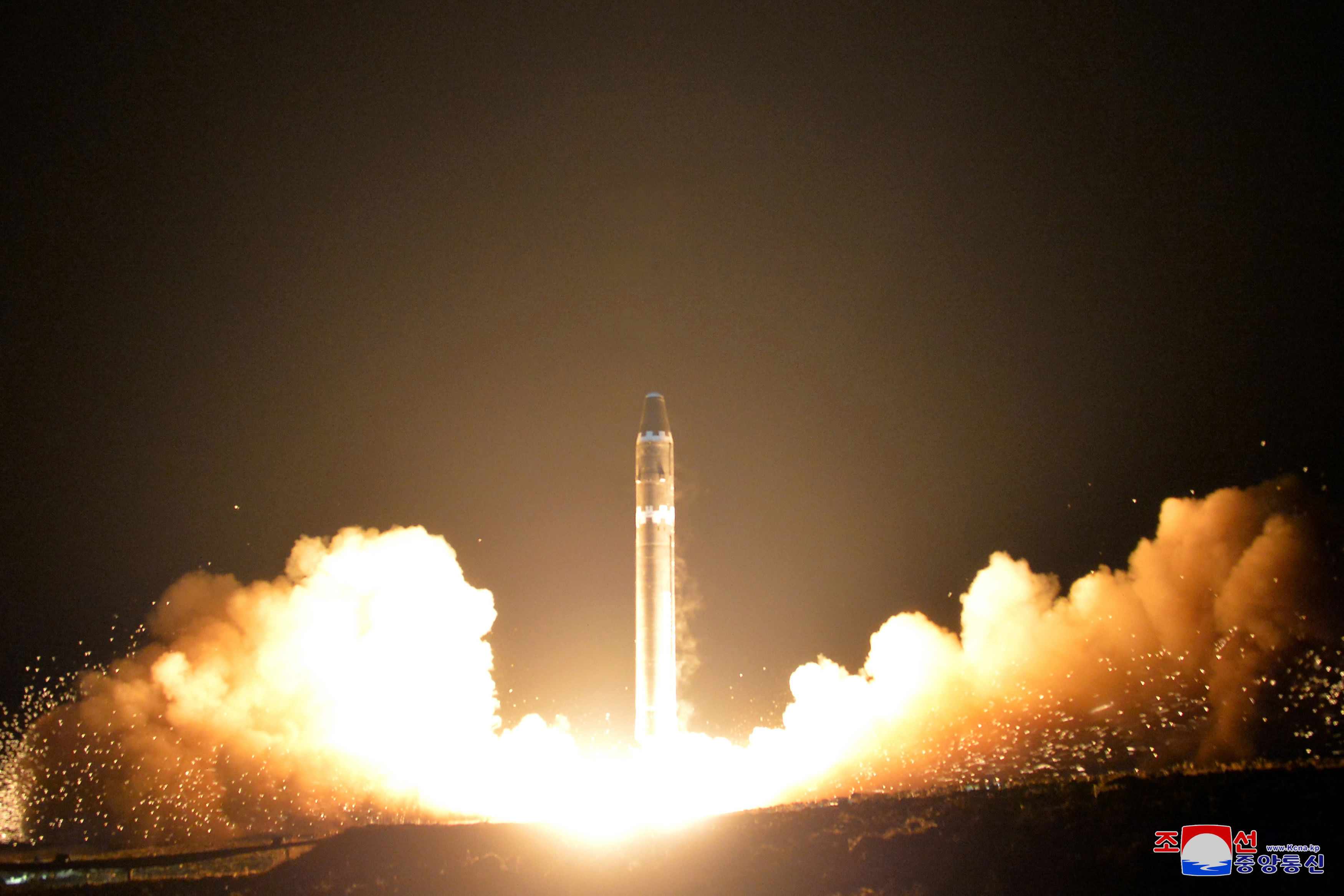
Politics
08:58, 30-Nov-2017
China calls for calm over 'grave situation' on Korean Peninsula
CGTN

The top priority is for all parties to exercise restraint in view of the current "grave situation" on the Korean Peninsula, implement UN sanctions and strive for an early return to the track of dialogue and negotiation, said Wu Haitao, China's deputy permanent representative to the United Nations, at an emergency meeting of the UN Security Council (UNSC) on Wednesday.
The Democratic People's Republic of Korea (DPRK) test fired its most advanced intercontinental ballistic missile (ICBM) earlier on Wednesday, claiming the new type of ICBM is capable of striking all of the US mainland.

It was Pyongyang's first test launch since a missile was fired in mid-September, days after its sixth nuclear test.
The UN Security Council called for an emergency meeting at the request of the United States, Japan and the Republic of Korea (ROK) to discuss next steps after three rounds of sanctions against the DPRK adopted last year.
Wu noted the recent stable period on the Korean Peninsula had provided a window of opportunity for diplomatic efforts. "Regrettably, this window failed to lead to a resumption of dialogue and negotiations," he said.

This undated photo released by the DPRK's Korean Central News Agency (KCNA) on November 30, 2017 purportedly shows the successful test of the newly-developed intercontinental ballistic rocket Hwasong-15. /Reuters Photo
This undated photo released by the DPRK's Korean Central News Agency (KCNA) on November 30, 2017 purportedly shows the successful test of the newly-developed intercontinental ballistic rocket Hwasong-15. /Reuters Photo
He also reiterated that China proposed a "dual-track" approach seeking to advance denuclearization and establish a peace mechanism in parallel, and a "suspension for suspension" deal under which Pyongyang would pause its missile and nuclear activities and Washington would put its joint military drills with the ROK on hold. These approaches "will elicit a response and support," according to Wu.

The US Ambassador to the UN Nikki Haley warned the DPRK during the meeting that it would be "utterly destroyed" if war were to break out.
"We have never sought war with North Korea [the DRPK], and still today we do not seek it. If war does come, it will be because of continued acts of aggression like we witnessed yesterday," Haley added.
She also said Donald Trump had called Chinese President Xi Jinping and urged him to "cut off the oil" from the DPRK.

DPRK leader Kim Jong Un is seen watching the newly developed intercontinental ballistic rocket Hwasong-15's test in this undated photo released by the DPRK Korean Central News Agency (KCNA) on November 30, 2017. /Reuters Photo
DPRK leader Kim Jong Un is seen watching the newly developed intercontinental ballistic rocket Hwasong-15's test in this undated photo released by the DPRK Korean Central News Agency (KCNA) on November 30, 2017. /Reuters Photo
The two leaders had a phone conversation late on Wednesday, Xinhua reported. Xi emphasized that denuclearization of the peninsula is China’s resolute goal and that China is ready to join the US in pushing the nuclear issue towards a peaceful settlement.
In response, Trump said the US has serious concerns over the launch of a ballistic missile by the DPRK.
Trump later tweeted, "Just spoke to President Xi Jinping of China concerning the provocative actions of North Korea. Additional major sanctions will be imposed on North Korea today. This situation will be handled!"

US President Donald Trump's Twitter Screenshot. /CGTN Photo
US President Donald Trump's Twitter Screenshot. /CGTN Photo
Russia urged the DPRK to stop its nuclear and missile tests and meanwhile, called on the US and the ROK to cancel their large-scale military drill scheduled for December, said Russia's UN ambassador Vassily Nebenzia.
He also told the UNSC emergency meeting that Russia is "deeply disappointed at the DPRK's latest missile tests" stressing that Russia does not support Pyongyang "becoming a nuclear power."
Moscow believes the only way to resolve the crisis is through "tireless and diplomatic efforts" to find "a long-term and mutually acceptable solution," Nebenzia added.
11001km

SITEMAP
Copyright © 2018 CGTN. Beijing ICP prepared NO.16065310-3
Copyright © 2018 CGTN. Beijing ICP prepared NO.16065310-3